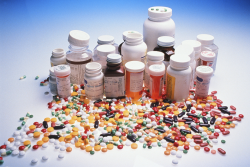Finding Help for Opioid Abuse
Opioids and opiates are terms that are often used interchangeably referring to those drugs such as morphine, heroin, and prescription pain killers that are derived from opium. There are also synthetic opioids, most commonly, methadone, that serve similar purposes and produce similar effects.
Abuse of opioids is an epidemic problem and with increasingly greater access to these drugs, more people are becoming exposed to their destructive consequences.
How do Opioids Work?

Opioids block the stimuli of pain.
Opiods are central nervous system depressants that reduce or block stimuli of pain, producing a calming effect in neurotransmission responses within the brain and central nervous system.
The brain’s neurotransmitter, dopamine, is highly influenced by the presence of opioids which cause its release in high concentrations producing the euphoria that most abusers look for.
Opioid Tolerance and Dependence
Once the brain adapts to the artificial increases of dopamine from use of opioids, it diminishes its natural productions and requires more opioids to make up the differences for any desired usage effects. As this tolerance to opioids continues, the brain adapts to their presence and becomes dependent on them to activate “normal” brain and physiological functions. Without them, the person goes into withdrawal.
Opioid Abuse
According to the Drug Abuse Warning Network, in 2011, there were an “estimated 3.1 million persons aged 12 or older in 2011 who misused or abused drugs for the first time within the past 12 months” and “Initiation rates for nonmedical pain reliever use continued to be second only to marijuana rates.”
Abusers often crush and snort or intravenously inject the pills to feel the immediate effects or to get a more potent high or combine the opioids with other substances such as alcohol or other CNS depressants which are common causes for overdoses and deaths.
Opioid Treatment
Opiod treatment involves treating the opioid abuse along with any co-existing substance abuse, mental and physical health conditions, and other contributing factors to the person’s ability to remain abstinent.
These services can be through an outpatient or inpatient facility that provides detox, counseling, and support in combination with cognitive behavioral therapies and pharmacological approaches to prevent relapse. The person learns to identify, avoid, and cope with “triggers” to use as well as how their thoughts and behaviors are interlinked in regards to their abuse.
Finding Help for Opioid Abuse
Finding help for opioid abuse may involve several considerations such as treatment duration, accreditations, time, travel, or cost, but, there are many options available and this should never be a deterrent to getting help. Options can be explore through:
- Online and local phonebook searches
- Community health departments, hospitals, or physicians
- AA or NA support groups or others who have participated in a rehab program
- The SAMHSA’s Facility Locator @ http://findtreatment.samhsa.gov/ or by calling the 24 hour Help Hotline: 1-800-662-HELP (4357)
- Clergy, churches, and community sponsored resources.







